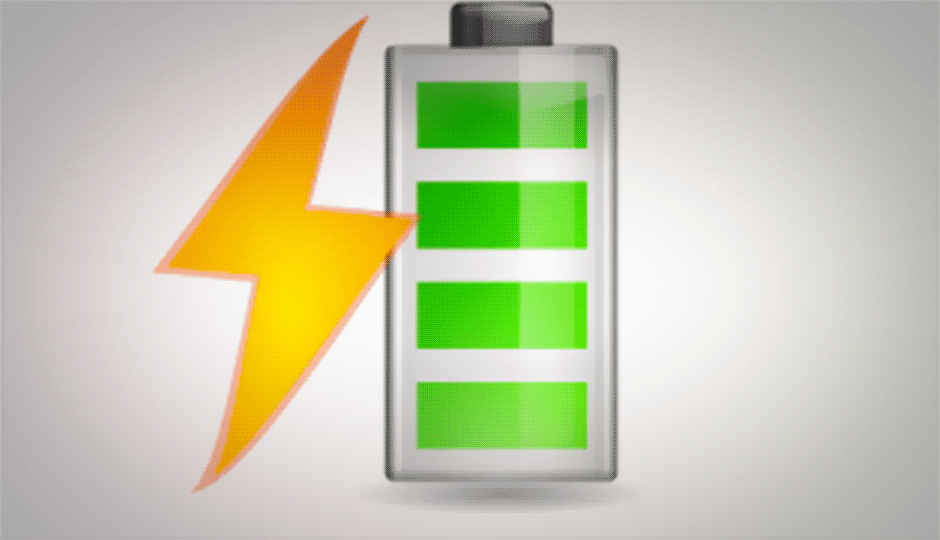Laptop Battery Tips & Tricks

Laptops are outselling desktops than ever before. And a perennial gripe with most laptop users is how to maximise their notebook’s battery life — we all desire laptops with humongous battery life, don’t we?
 Survey
SurveyHere are a few pointers on helping you get the most out of your laptop battery.
1) Maximize battery life
The component that consumes the most battery power of your laptop is its screen. To ensure maximum possible run time of your laptop battery, be sure to dim your display whenever possible and especially when you aren’t connected to an AC supply.
In addition to that, disabling services such as Bluetooth and Wi-Fi network connections when they aren’t being used will also save you valuable battery power. Disconnecting external devices like USB flash drives when you’re done transferring data to or from them will also extend battery life.
2) Never charge your laptop’s battery constantly
A battery constantly kept at full charge will degrade at a faster rate, hence never keep your laptop (and its battery) connected to mains constantly. If you connect your laptop to an AC supply most of the time, the battery’s capacity to hold charge will reduce quicker than normal. Plug a laptop’s battery for charging when the charge drains below 15% and try not to unplug the laptop’s battery while it’s in the middle of its charging cycle. Also remember that fully discharging a battery isn’t recommended as it stresses the Li-ion battery and can be detrimental.
3) Don’t remove your laptop’s battery when it’s plugged into a power source
We’ve seen some people do this — they charge their laptop battery to the max and unplug the battery while working on their laptop connected to AC mains. They do this to have a fully-charged battery whenever they have to move away from the power source and have to use their laptop on the go.
This practice can lead to your laptop shutting down involuntarily if there’s a power cut in your neighbourhood. Only remove the battery from your laptop (when it’s connected to mains) if your laptop’s overheating (around 60 C and above) and don’t make it a habit of working on your laptop constantly connected to AC supply, allow your laptop battery to charge and discharge periodically.
4) Store a battery in a cool place
If you don’t intend to use your laptop for more than two weeks or if you have an extra battery that won’t be used for a long time, make sure you get the battery level down to 50 percent charge before unplugging it from your laptop. And remember to store it in a cool place.
Why? Because heat causes a battery to degrade at a faster rate, hence it’s always best to minimize the battery’s exposure to heat. Make sure you aren’t blocking the laptop’s heat vents when working on it from your lap. Also some laptops come with Intel’s Advanced Cooling Technology to improve airflow so that it can run cooler. Avoid storing your laptop in a car for long where it can easily overheat.
5) Charging and discharging your laptop’s battery
Most modern-day laptops have Lithium ion batteries, free of memory effect, so it’s unnecessary to do full charge and discharge cycle on them on a daily basis like other battery types — NiCd and NiMH. But remember, doing a full discharge and charge cycle at least once in every 40 to 50 charge cycles will help keep your battery’s fuel gauge accurate.
6) Replacing a laptop’s battery
Among all electronic components in a device running on battery, its battery is probably the most susceptible to reduced capacity due to constant usage and gradual aging. In a laptop, the battery’s charge holding capacity will gradually reduce with the number of charge / discharge cycles it has endured. This will directly impact your laptop’s standy time, as it will become lesser and lesser.
Since laptop usage is unique from person to person, so is its effect on the laptop’s battery. We generally see a brand new laptop’s battery behaving well and optimally (with proper precaution) for up to a year after its purchase. After that, it can only go downhill. But we recommend replacing a laptop’s battery when it cannot hold a full charge and you don’t get any standby time from it, or when its current run time falls significantly below its original run time.
Do check out our other Tips and Tricks, and How To articles, below:
- Six ways to master Google Chrome, and optimize your web experience
- Beginner’s guide to shopping on eBay
- How to make your iPhone or iPad run faster
- How to remotely disable your lost or stolen phone
- 10 Photography Tips for Enthusiasts